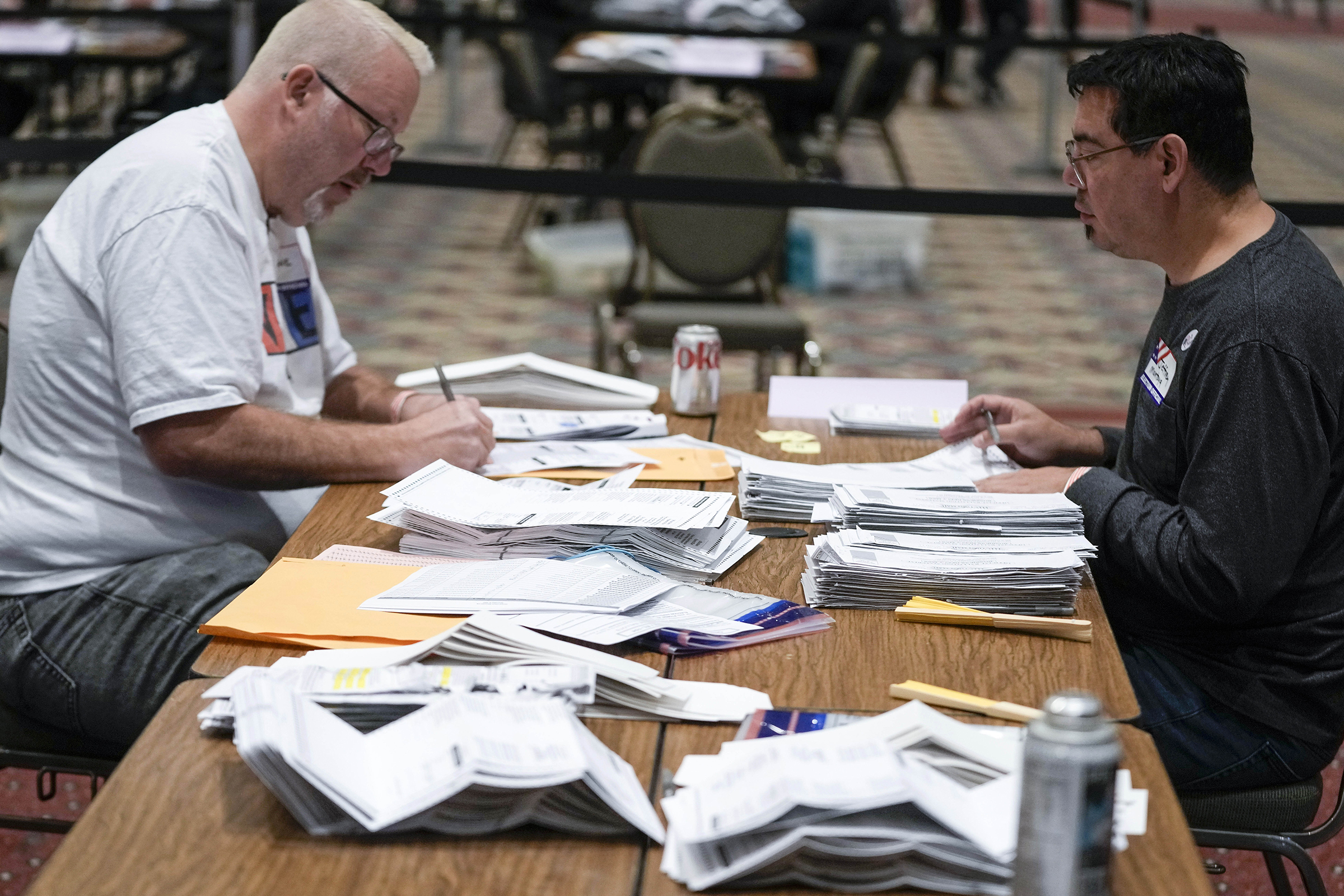Local clerks may still have to wait until Election Day to begin processing absentee ballots in Wisconsin, despite a bipartisan effort to allow for early canvassing.
The state Assembly passed legislation in November that would allow election workers to begin processing absentee ballots the day before an election.
But in an interview that aired Sunday, Senate Majority Leader Devin LeMahieu, R-Oostburg, told WISN-TV that the bill is likely dead, saying he doubts the legislation will make it out of a Senate committee.
News with a little more humanity
WPR’s “Wisconsin Today” newsletter keeps you connected to the state you love without feeling overwhelmed. No paywall. No agenda. No corporate filter.
“I think a couple members of the committee have problems with the bill,” LeMaheiu said.
The Republican-authored bill would allow municipalities to begin canvassing absentee ballots the day before an election, and require it in communities that use a central location for counting absentee ballots, like Milwaukee. Election workers would not be allowed to tally the ballots during early canvassing.
The change has been proposed by both Democrats and Republicans for years. Large cities often take longer to process the large quantity of absentee ballots they receive, sometimes leading to late-night swings in unofficial election results. That fueled former President Donald Trump’s false claims of vote “dumping” in 2020, when the final tally of votes in Democratic cities like Milwaukee weren’t known until the middle of the night.
Creating a process that allows us to report our results on election night will just continue to strengthen the transparency and trust in our democratic process.
Claire Woodall
In the interview, LeMaheiu pointed out that he has authored one of the past versions of the bill. When asked if Senate Republicans will be to blame for late night results in Milwaukee this November, LeMahieu said it’s the city’s responsibility to “count their ballots faster.”
The Senate Committee on Shared Revenue, Elections and Consumer Protection held a public hearing on the bill in December. Claire Woodall, executive director of the City of Milwaukee Election Commission, spoke in support of the bill, saying voting by mail continues at nearly 400 percent of the level the city saw prior the COVID-19 pandemic.
“This is not just an issue that’s important for the city of Milwaukee, but it affects many communities throughout the state of Wisconsin,” Woodall said at the hearing. “Creating a process that allows us to report our results on election night will just continue to strengthen the transparency and trust in our democratic process.”
Woodall said Milwaukee processed 170,000 absentee ballots in 2020 and 61,000 absentee ballots in 2022.
Backers of the legislation could still try to force a vote on the bill before lawmakers adjourn in March, but LeMahieu’s comments suggest such an effort would face steep odds in the Senate.
Wisconsin Public Radio, © Copyright 2026, Board of Regents of the University of Wisconsin System and Wisconsin Educational Communications Board.






